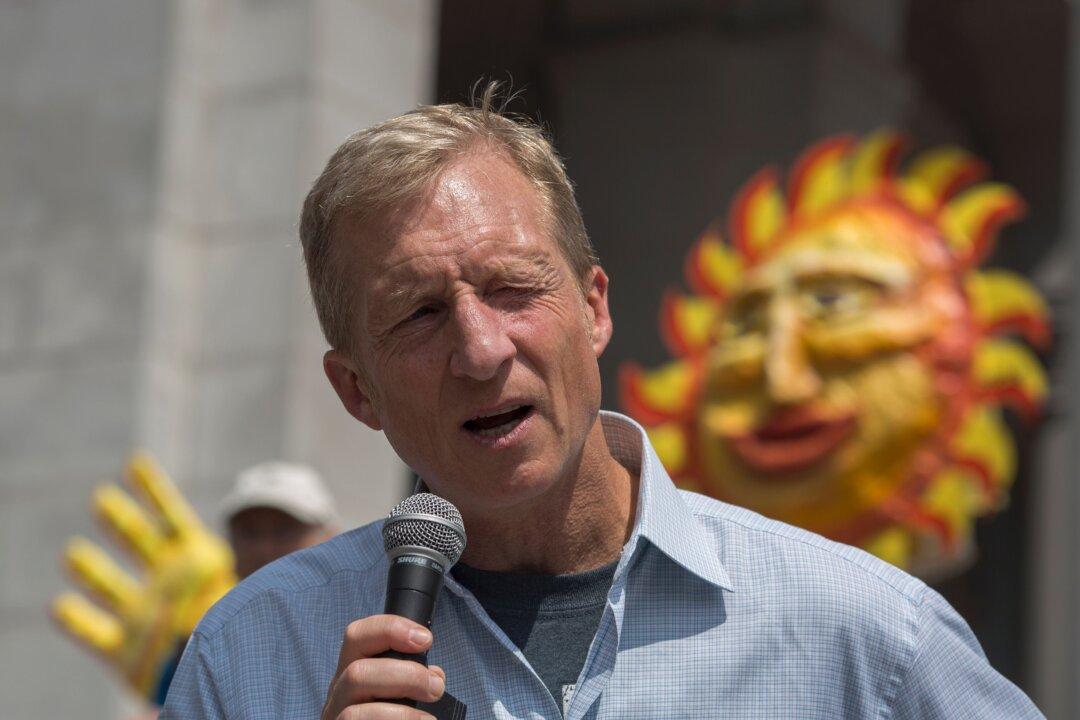WASHINGTON—Democratic mega-donors, including George Soros and Tom Steyer, are putting millions of dollars into efforts to put Hillary Clinton in the White House and win control of the Senate. Their investment comes as Republicans worry about not only the chances of their nominee Donald Trump, but also his effect on down-ballot races.
Yet few of the GOP’s biggest donors have put major money into Trump efforts, a striking change from four years ago when Mitt Romney had more million-dollar donors on his side than did President Barack Obama. They’re also not rushing to help save the Senate, based on the July reports from GOP super PACs.
The presidential candidates and many outside groups detailed their July fundraising and spending to the Federal Election Commission on Saturday. Here are some highlights:
Soros Returns
Billionaire after billionaire appeared on the latest fundraising reports from Democratic super PACs.
Super political action committees face no restrictions on how much money they can take from individual, corporate and union donors. Liberals have decried these groups as bad for democracy — yet they’ve leaned on them to help win races, saying they don’t want to disarm against Republicans.
In July alone, New York hedge fund billionaire George Soros gave $1.5 million to Planned Parenthood’s super PAC and $35,000 to Priorities USA, both working to elect Clinton, as well as $500,000 to the Senate Majority PAC. Other million-dollar donors to Priorities USA include the creator of diet product Slim-Fast, Daniel Abraham, and Donald Sussman, a financier who is divorcing Maine Rep. Chellie Pingree.
Soros’s latest contributions bring his 2015-2016 super PAC total to more than $14 million — a fivefold increase from his super PAC investments during the previous presidential election.





